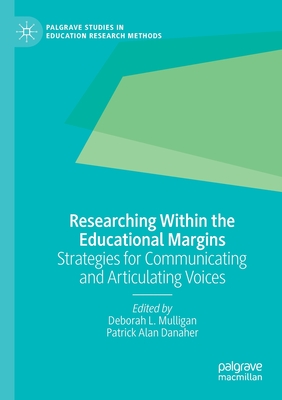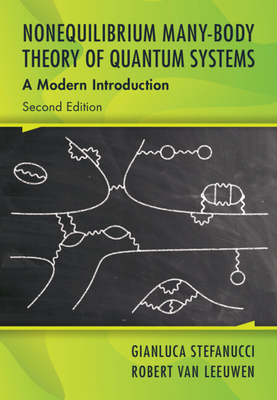图书简介
This book explores the challenges and considerations of researchers who work on the educational margins of society. It investigates the diverse and specific research strategies that have been developed to ensure research is authentic, ethical, rigorous, situated and, where possible, empowering. Traversing cutting-edge global research, the chapters demonstrate the effectiveness of specific research methods when researching within educational margins related to particular ‘wicked problems’. Against a backdrop of increasing scrutiny of the conduct of researchers working with marginalised people, this book provides an informed and empowering overview of research methods for those working with marginalised groups.
Section 1: Contextualising and Conceptualising Researching within the Educational Margins: Introduction;Deborah L. Mulligan.- Chapter 1.Setting the Scene for Researching within the Educational Margins: Selecting Strategies for Communicating and Articulating Voices in Education Research Projects; Patrick Alan Danaher and Deborah L. Mulligan.- Chapter 2. The Wicked Problems of Researching within the Educational Margins: Some Possibilities and Problems; Deborah L. Mulligan and Patrick Alan Danaher.- Section 2: Researching with Children and Marginalised Youth.- Chapter 3.- Harnessing the “Unique Voice” of the Child for Programme Evaluation and Development in Education Research in the United Kingdom: Methodological and Ethical Challenges; Michelle Jayman.- Chapter 4. Insiders and Outsiders: The Ethics of Insider Research When Investigating Australian Alternative Learning Environments; Corey Bloomfield and R. E. (Bobby) Harreveld.- Chapter 5. Navigating the Affordances and Limits of Ethnographic Research in Exploring Career Development for Marginalised Youth in an Australian Flexible Learning Programme; Naomi Ryan.- Chapter 6. Digital Margins: Constituting and Challenging Inequity through Data Infrastructures in Queensland Education, Australia; Jennifer Clutterbuck.- Chapter 7.Adult Narrated Perspectives on Childhood Marginalisation in Everyday School Life in Denmark; Christian Quvang.- Chapter 8.Embracing the Ethical Possibilities of Researching about Autistic Individuals’ Transition to Post-School Opportunities in South West Queensland, Australia; Karen Glasby.- Section 3: Researching about Cultural Differences and Intercultural Experiences.- Chapter 9. Cultivating a Vision for Change: Applying Action Research to Empower Teachers in an Independent Christian School in New South Wales, Australia in a Market-Driven Schooling System; Bronwyn Wong.- Chapter 10. Privileging the Voice of Australian Aboriginal Communities Marginalised by Colonisation; Megan Forbes.- Chapter 11. “Greetings from Nanning and Qinzhou!”: Student Reflections on an Australian University Study Tour to China as an Experience of Critical Interculturality; Mike Danaher.- Chapter 12. Mobilising Critical Interculturality in Researching within the Educational Margins: Lessons from Dhofari Women’s Experiences of English Language Undergraduate Courses in Oman;Samantha Burns and Patrick Alan Danaher.- Chapter 13. Occupational Travellers and Researchers as Educational Border Crossers: Methods for Researching with Australian and British Fairground People;Geoff Danaher and Patrick Alan Danaher.-Section 4: Researching about Informal Learning and with Older Learners.- Chapter 14. Unstitching the Fabric of Informal Learning: Researching Collective Quiltmaking in Aotearoa New Zealand; Linda Claire Warner, Pirita Seitamaa-Hakkarainen and Kai Hakkarainen.- Chapter 15. Insider Research: Articulating the Voices of Women Schooling their Children in Remote Queensland, Australia; Marlyn McInnerney.- Chapter 16. Learning in Later Life: Issues Affecting the Efficacy of Research; Brian Findsen.- Chapter 17. Traversing the Dark Geography of Retirement: Learnings from Ethical and Reciprocal Research Conducted with the Older Male in Australia;Deborah L. Mulligan.- Chapter 18. Learning through Uncertainty: A Phenomenological Analysis of Older, Professional Men Coping with Involuntary Job Loss in the United States;Brian S. Hentz.-Section 5: Applications and Implications of Researching within the Educational Margins.- Chapter 19. Activist Research: Real-World Reciprocity – A Provocation; Deborah L. Mulligan.- Chapter 20. Researching within the Educational Margins: Selected Answers to the Organising Questions; Deborah L. Mulligan and Patrick Alan Danaher.
Trade Policy 买家须知
- 关于产品:
- ● 正版保障:本网站隶属于中国国际图书贸易集团公司,确保所有图书都是100%正版。
- ● 环保纸张:进口图书大多使用的都是环保轻型张,颜色偏黄,重量比较轻。
- ● 毛边版:即书翻页的地方,故意做成了参差不齐的样子,一般为精装版,更具收藏价值。
关于退换货:- 由于预订产品的特殊性,采购订单正式发订后,买方不得无故取消全部或部分产品的订购。
- 由于进口图书的特殊性,发生以下情况的,请直接拒收货物,由快递返回:
- ● 外包装破损/发错货/少发货/图书外观破损/图书配件不全(例如:光盘等)
并请在工作日通过电话400-008-1110联系我们。
- 签收后,如发生以下情况,请在签收后的5个工作日内联系客服办理退换货:
- ● 缺页/错页/错印/脱线
关于发货时间:- 一般情况下:
- ●【现货】 下单后48小时内由北京(库房)发出快递。
- ●【预订】【预售】下单后国外发货,到货时间预计5-8周左右,店铺默认中通快递,如需顺丰快递邮费到付。
- ● 需要开具发票的客户,发货时间可能在上述基础上再延后1-2个工作日(紧急发票需求,请联系010-68433105/3213);
- ● 如遇其他特殊原因,对发货时间有影响的,我们会第一时间在网站公告,敬请留意。
关于到货时间:- 由于进口图书入境入库后,都是委托第三方快递发货,所以我们只能保证在规定时间内发出,但无法为您保证确切的到货时间。
- ● 主要城市一般2-4天
- ● 偏远地区一般4-7天
关于接听咨询电话的时间:- 010-68433105/3213正常接听咨询电话的时间为:周一至周五上午8:30~下午5:00,周六、日及法定节假日休息,将无法接听来电,敬请谅解。
- 其它时间您也可以通过邮件联系我们:customer@readgo.cn,工作日会优先处理。
关于快递:- ● 已付款订单:主要由中通、宅急送负责派送,订单进度查询请拨打010-68433105/3213。
本书暂无推荐
本书暂无推荐
















